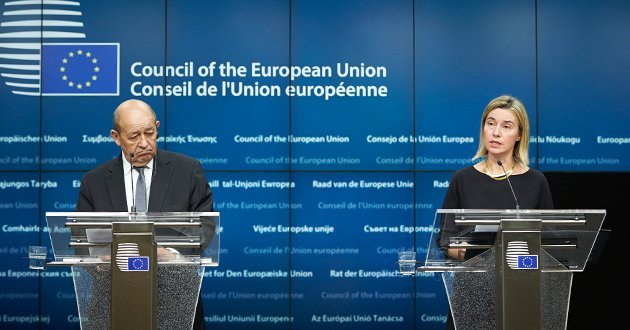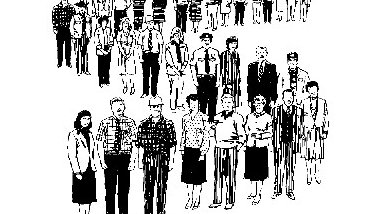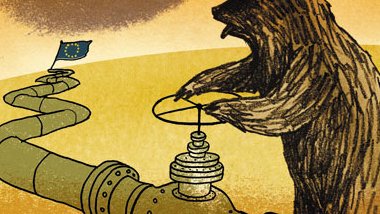“If a member state is the victim of armed aggression on its territory, the other member states shall have towards it an obligation of aid and assistance by all the means in their power.” That is what the article 42.7 of the Lisbon Treaty says about mutual defence. As we have written before, it would be absurd if European countries otherwise so strongly linked together would abandon a country which is facing the worst crisis a state can come across, i.e. war. Before last week, however, there were fears that solidarity in this regard would be nothing more than words. In her analysis, Teija Tiilikainen, the director of the Finnish Institute of International Affairs notes that the text doesn’t even specify how the assistance provided by other EU member states would be coordinated.
The unanimous decision was a clear signal of European solidarity. Even though the atmosphere has been very tense this year, the need for security proved to be something that unites Europeans. In a situation where, despite the fact that considerable numbers of people were killed in the Paris massacre, the main focus of the conflict lies outside Europe, EU High Representative for Foreign Affairs and Security Policy Federica Mogherini described the move as ”first of all, a political act, a political message”, as EUObserver reported.
On the very day when European ministers were discussing France’s request to activate the mutual defence clause, I took part in an event held at the University of Helsinki where experts discussed the future of European defence. At the event, Tommi Koivula from the Finnish National Defence University had a similar sentiment – he called France’s request a clever political move when replying to a question about whether the Paris attacks could be the symbol of a new crisis from which Europe emerges more united than before. Tuomas Iso-Markku from the Finnish Institute of International Affairs and Jarno Limnéll from Aalto University agreed that under these circumstances, the discussion is of a political nature and serves as a precedent for possible future conflicts.
In her analysis written in the aftermath of the EU ministers’ meeting, Teija Tiilikainen says that the EU’s response would serve as a testing ground for European security and defence policy. Bilateral talks between France and other EU member states are how the decision to activate the mutual defence clause is implemented. Tiilikainen says that the experience gained from the discussions will show whether such an approach is sufficiently effective. If not, a joint command structure could turn out to be necessary. Another unanswered question brought up by Tiilikainen is how big a degree of diversity is tolerated in the forms of participation – how much support EU member states are ready to give to France now helps us predict how efficiently Europe could act in the case of a more traditional conflict, Tiilikainen reasons.
Not everyone could predict that such a discussion would start as a result of the Paris attacks. At the public event, Tommi Koivula admitted that France’s invoking the mutual defence clause came ”out of the blue” for him. Indeed, it would have been much more obvious if foreign tanks rolled across a national border. However, it is important to note that in today’s world war comes in many forms and Europe must be prepared to take action before there are tanks involved. One can see that information warfare and cyber attacks are actively used to support troopers and Hornets. Applying the mutual defence clause in the less traditional settings will have to be considered in the future, too – this is another reason why it was very prudent of France to bring this discussion back to the table after a terrorist attack. Teija Tiilikainen argues that this precedent makes it clear that the clause can be applied in ”cases that go beyond its strict wording” i.e. armed aggression.
Subtlety and shades of grey between war and peace are characteristics of modern warfare. The ability to act quickly is another. How fast Russia could augment its military presence in Syria this autumn came as a surprise to the West; France could bomb a training camp in the ’ISIS capital’ Raqqa quicker than the police could find the main suspects from Paris and Brussels. In the meantime, the decision-making process of the European Union isn’t famous for its quickness, especially when it comes to foreign and security policy. If there were a traditional war, especially a small member state could easily become incapable of acting before other EU member states could finish their bilateral talks with the attacked country.
NATO is there to help most EU members but if the long-term goal is to make Europe a stronger actor in its own right, it should be able to defend itself, be it together with the NATO or without it. Therefore a quick reaction from other EU member states is necessary. Perhaps Europe will come to realise that a joint command structure is needed to coordinate military cooperation in a situation where every minute matters. It may seem a distant vision but, after all, Europe must be prepared for everything as the unpredictable has happened before. How Europe approaches the threat of terrorism has already offered plenty of food for thought but the story isn’t over. There will be more discussions to be had on the mutual defence clause.




Follow the comments: |
|
